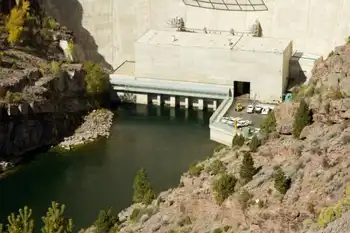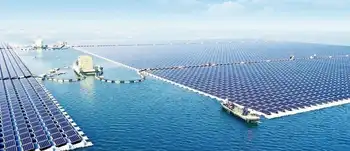ACR-1000 Reactor takes next step in UK
By Canada News Wire
NFPA 70b Training - Electrical Maintenance
Our customized live online or in‑person group training can be delivered to your staff at your location.

- Live Online
- 12 hours Instructor-led
- Group Training Available
"The UK regulators in this stage of their analysis have found no safety, security or environment shortfalls that would rule out the ACR-1000 for construction in the UK," said AECL President and Chief Executive Officer Hugh MacDiarmid. "This is excellent news for AECL as it confirms that the ACR-1000 is ready for the marketplace and will meet the expectations of our customers."
AECL's ACR-1000 is one of four technologies being assessed in the UK's Generic Design Assessment (GDA), a pre-licensing process that is being managed by the UK's nuclear regulators in order to establish candidates for a new generation of nuclear power plants to replace most of Britain's aging fleet of 19 reactors.
The UK's largest union, Unite, has expressed their support for AECL's ACR-1000 publicly and to the UK government through a letter to Prime Minister Gordon Brown, which cites that the ACR-1000 has greater supply chain benefits than its competitors' technologies - including a reactor design that can be readily manufactured - and offers greater opportunities for jobs and skill development than its competitors.
The UK nuclear regulators - the Health and Safety Executive and the Environment Agency - developed the GDA process, which is being conducted through a Joint Programme Office.
The GDA allows technical assessments of the reactors to be conducted using a four-step process before specific nuclear site licence assessments are undertaken.
Step 1 involved the preparatory part of the design assessment process, including participation in the UK regulators' ongoing public consultation process.
During this latest Step 2, the Health and Safety Executive and the Environment Agency carried out preliminary assessments of the fundamental acceptability of the ACR-1000 design concept within the UK regulatory regime, considering safety and security, and environment aspects of the design, respectively.
In their report, the Environment Agency found no "matters within the submission that are obviously unacceptable," and indicated that they had "not identified any significant design modifications that are likely to be needed before we could issue a permit."
The HSE report, meanwhile, indicated "that AECL has a well-defined ACR-1000 project organization, with about 500 staff supporting the project on a full-time basis, and a related quality management system, which is developed from and linked to mature corporate quality assurance arrangements."
The HSE reported in its summary, "We have not found any safety or security shortfalls that are so serious as to rule out at this stage eventual construction of the ACR-1000 on licensed sites in the UK. As a result of our assessment, we see no reason why ACR-1000 should not progress to GDA Step 3."
Step 3 involves a safety and security assessment by HSE of the proposed reactor designs at the system level. In parallel, the Environment Agency will proceed to a detailed assessment stage.
The UK government is expected, by May 2008, to give priority to the three designs that will continue in Step 3 of the GDA process.











